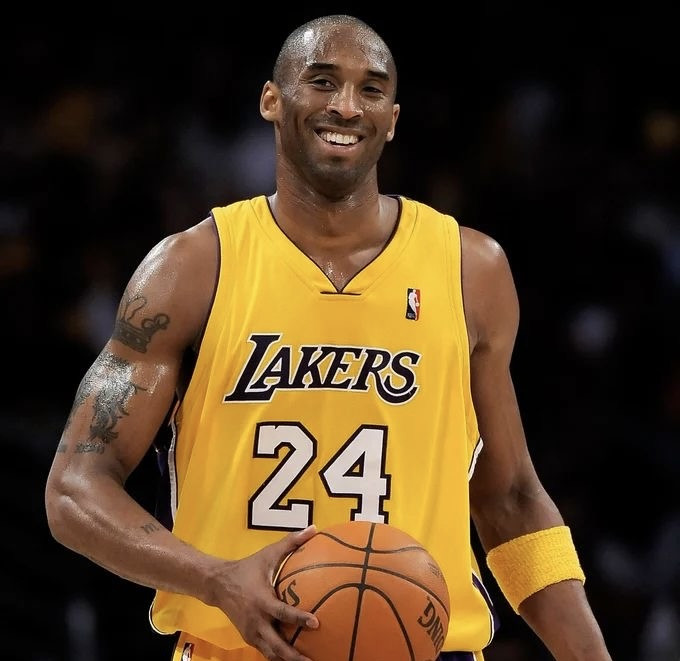Why Kobe Bryant Missed the NBA Top 10: Controversial Ranking Explained
Bleacher Report's ranking challenges whether stats alone can capture Kobe's legacy and cultural impact

Kobe Bryant's exclusion from Bleacher Report's NBA Top 10 rankings has reignited debate about how basketball greatness is measured. While data-driven rankings prioritise efficiency, many argue these miss Kobe's clutch legacy and global impact.
This article explores why Kobe ranked 11th, and whether modern stats can fully capture his greatness.
Why Advanced Stats Left Kobe Just Outside the NBA Top 10
Bleacher Report's 2025 NBA player ranking placed Kobe Bryant 11th due to his career efficiency and MVP count. His true shooting percentage of 55% lagged behind peers like Stephen Curry, whose 62.5% marks him as a statistical outlier.
Kobe earned only one regular-season MVP during his 20-year career, while others in the top 10 consistently led in advanced metrics such as Player Efficiency Rating (PER) and Box Plus/Minus (BPM). These stats-focused criteria placed Kobe just outside the elite tier in this ranking.
How Kobe's 'Inefficiency' Criticism Misses the Full Story
Critics often cite Kobe Bryant's 55% career true shooting percentage as evidence of inefficiency. But this view overlooks vital context. Kobe played through multiple eras of intense defence, particularly in the early 2000s, when scoring was harder and physicality was the norm. He also shouldered a heavy usage rate, often taking tough, contested shots late in the clock as his team's primary scorer.
Supporters highlight playoff moments like 2008, when Kobe posted a 57.2% true shooting percentage, significantly higher than LeBron James's 47.9% in the same postseason. Data alone rarely captures the difficulty of Kobe's role, nor the weight of his impact under pressure.
The Mamba Mentality: Why Kobe's Legacy Transcends Statistics
Kobe Bryant's relentless Mamba Mentality, a philosophy grounded in discipline, mental resilience, and constant self-improvement, helped establish him as a global icon. His influence extended far beyond basketball, inspiring athletes and fans across cultures and generations. After leading Team USA to gold at the 2008 Beijing Olympics, Kobe's international popularity soared, particularly in China, where his jersey frequently outsold all others for several years (LA Times).
Former teammate Shaquille O'Neal described Kobe's exclusion from the NBA top 10 as "criminal", insisting that statistics alone can never capture his true impact. For many, Kobe's greatness lies not in numbers, but in the mentality he embodied.
How Kobe's Clutch Performances Cemented His NBA Legend
Kobe's iconic moments include his 81-point game, the second highest in NBA history, and five championships, including back-to-back titles in 2009 and 2010. His 60-point final game in 2016 remains one of the sport's greatest farewells.
According to NBA data, Kobe's passing in January 2020 caused the largest single-day spike in jersey sales and social media engagement in league history, highlighting his emotional connection with fans worldwide.
Why Modern NBA Rankings Struggle to Capture True Greatness
Modern rankings focus on measurable metrics, but fail to capture leadership, resilience and cultural influence. Kobe mentored stars like Jayson Tatum and Devin Booker, expanded the NBA's global reach, and inspired millions with his work ethic and passion.
These intangible qualities make it difficult for data alone to define his greatness.
What Kobe's Ranking Reveals About Defining NBA Greatness Today
Kobe Bryant's near-top-10 placement shows the tension between statistical analysis and emotional legacy. Should greatness be measured by numbers or by lasting influence?
While data-driven rankings provide clarity and objectivity, they sometimes overlook the emotional power of a player's story. Kobe's career reminds us that impact goes beyond the scoreboard.
Kobe Bryant's Legacy Will Always Rank Among NBA's Finest
Although Kobe was ranked 11th by Bleacher Report, his influence transcends rankings. His story challenges us to balance analytics with emotion when defining greatness in basketball.
© Copyright IBTimes 2025. All rights reserved.




















